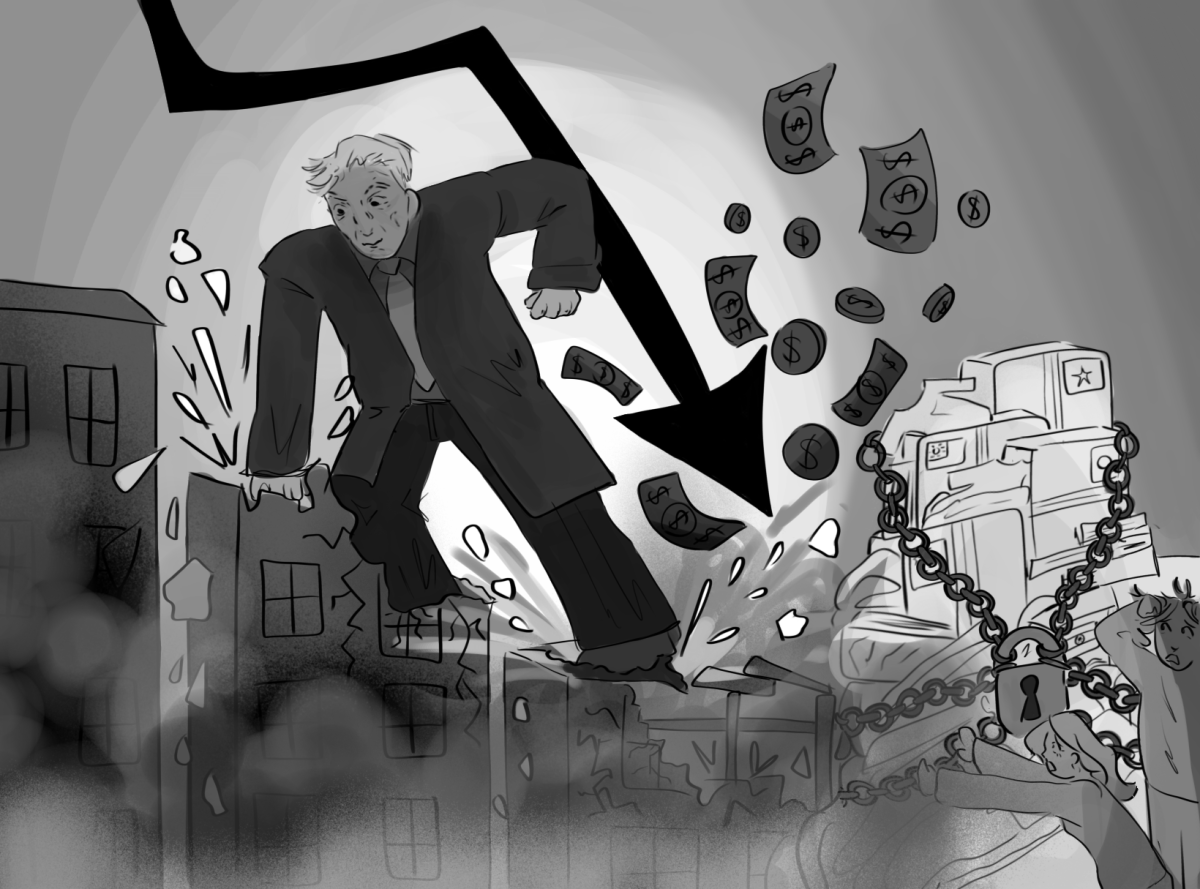On April 2, President Donald Trump introduced a new set of reciprocal tariffs — taxes on imported goods aimed at international trading partners — from a baseline of 10% to rates reaching 125% for countries with the largest trade deficit with the U.S., affecting foreign goods. The tariffs extend “America First” trade priorities, attempting to divert spending from global trade to domestic. Instead, the tariffs have devastated the economy and compromised trust with the American people, plummeting stockholders and trickling down to business owners, heightening tensions with other countries.
The new tariffs are designed to bring other countries’ tax rates on par with America’s, as other countries imposed higher tariffs on U.S. goods. However, the immediate consequences of these tariffs have been catastrophic.
The uncertainty and fear of these sudden changes caused the U.S. stock market to plummet. S&P 500, Nasdaq Composite, and Dow Jones Industrial Average — three of the most followed U.S. stock market indexes — each lost trillions of dollars in just a few days. Investors panic-sold their stocks as money evaporated in the largest stock market crash since 2020 — a crash exacerbated by the pandemic halting trade.
Typically, economists argue that tariffs reduce the flow of trade and fail to benefit the economy. Often, retaliatory tariffs follow, exacerbating the taxes and creating a trade war. Subsequently, trading partners with U.S. businesses began to part due to the increased difficulty in distributing products.
American businesses reliant on international products may be forced to raise prices to sustain their practice, inflating America’s economy. Trump directly hurts the very people he promised to protect: working-class Americans at risk of job layoffs due to higher costs of goods and a reduced demand for exports, ignored by an apathetic administration. Meanwhile, citizens are left scrambling towards an uncertain future and fear of potential closures. Slowing down both the global and national economy,
While the Trump administration argues these tariffs are necessary to address long-standing trade imbalances and protect the U.S. international trade, preventing other countries from taking advantage of it, it neglects the U.S. economy’s reliance on trading with an overly simplistic approach. Instead of fulfilling its goal, it increases panic and trade wars, devastating the nation. The tariffs are blunt instruments that fail to address the root causes of the nation’s economic issues, as they hurt consumers and businesses while backfiring in ways that cause economic decay.
As the U.S. grapples with an ever-growing national debt, the economic fallout from tariffs could exacerbate fiscal challenges, ruining the nation’s financial future. The rhetoric around “fair trade” must give way to practical solutions that protect workers without undermining global economic stability. Instead of further pursuing these harmful policies and punitive approaches, the Trump administration must effectively build stronger international connections, through negotiation and diplomacy when creating fair trade agreements to truly benefit American citizens.
















































